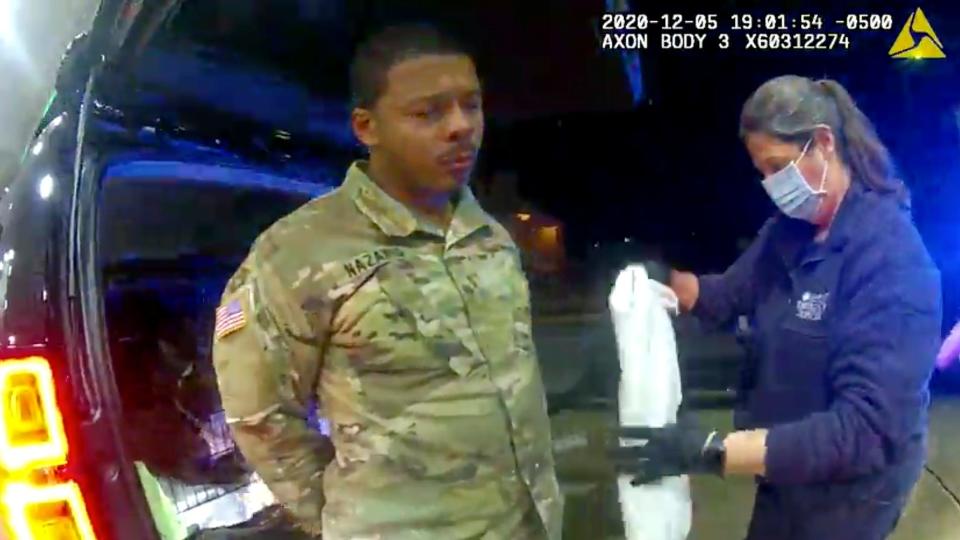Wright, Nazario cases show we have a serious racial profiling problem
Here’s a troubling fact: Black and Latino drivers are stopped more often than white drivers, based on less evidence of wrongdoing.
According to a 2019 Stanford University Study, titled the “Stanford Open Policing Project” researchers compiled the most comprehensive evidence regarding racial disparities in traffic stops ever collected. The data points to consistent racial profiling in how police decide to stop and search white versus minority drivers.
If the Stanford findings aren’t troubling enough, the past few days in America have once again put a spotlight on how black and brown people are treated badly at traffic stops. The viral video showing a black and Latino United States Amy Lt. being yelled at, disrespected, commanded and pepper sprayed by police in Windsor Virginia, as they pointed loaded guns at him, is in a word: despicable. Worse, he was stopped under suspect circumstances (allegedly he did not have proper tags, when in fact he had temporary tags for a new car.)
Conjuring up Jim Crow history
As a proud Virginian myself, I felt both anger and dismay as to what I watched as the black soldier, Caron Nazario, was pulled over with guns drawn down on him, as he was being screamed at to “obey” and when he asked what was happening, he was told that he was about to “ride the white lightening” by peace officers here in the Commonwealth.
The “white lightening” phrase jarred me to my very soul. Because it conjures up the worst of the Jim Crow south and white men hunting black men in the dark or walking them slowly down the hallways of death row to sit in the electric chair (aka “white lightening”) as seen in the movie, "The Green Mile”. But it isn’t really that surprising when you look at the history of policing in the deep south and throughout America.

We all know about the slave patrols that started in America in the deep south, in places like Virginia (the wealthiest of the original 13 colonies). While policing in America certainly has also has its roots in English constables, policing in southern slave-holding states was created for vastly different reasons dating back to the seventeenth and eighteenth centuries. These “patrols” were used to track runaway slaves like Harriett Tubman and later to enforce Jim Crow laws in the late 1880s through the 1960s.
According to Professor Michael Robinson of the University of Georgia, who is a scholar in the area of social work and colonial slavery, the first deaths in America of Black men at the hands of law enforcement “can be traced back as early as 1619 when the first slave ship, a Dutch Man-of-War vessel landed in Point Comfort, Virginia.”
Black Americans: In face of more police violence, what happened to Biden pledge to have backs of Black America?

 Yahoo Autos
Yahoo Autos 